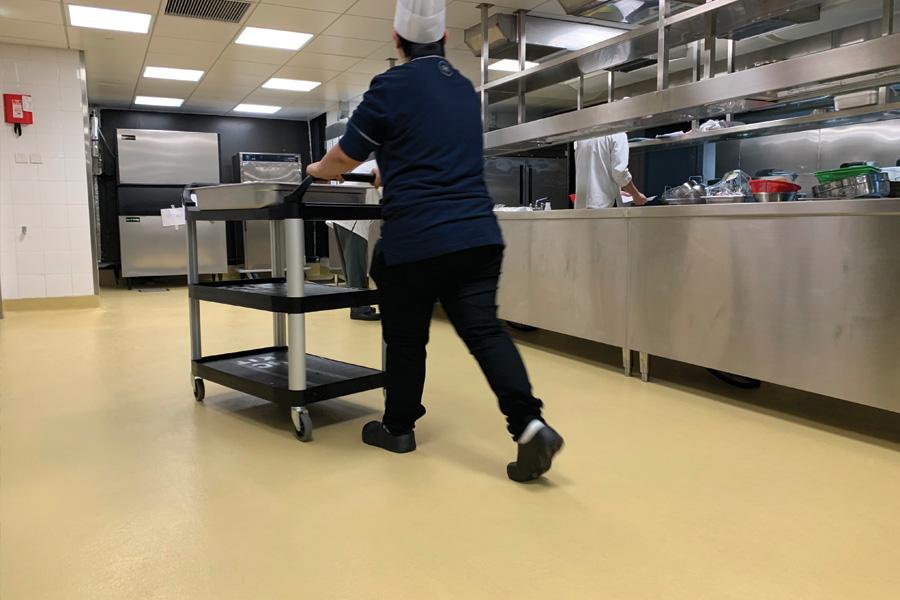JENNY Jones, Flowcrete technical specification advisor explains in her own words the role: Protecting your plate: The role of resin flooring in food production environments:
Today’s food industry is among the most complex and specialised market sectors in the world. Food production facilities need to maintain high levels of cleanliness to ensure the food being produced is safe and healthy for consumption.
The type of flooring used in a food production facility plays a significant role in ensuring the safety and quality of the food produced and a critical component in maintaining hygiene in a food production environment. In the food industry, hygiene is not only essential for the safety of the food being produced but also for the health of employees.
Seamless resin-based flooring is a popular choice for food production facilities because of its hygienic profile and hardwearing performance characteristics. Resin flooring systems have been designed to best meet the different working areas within a food processing plant. Types of resin flooring options include cementitious polyurethane, methyl methacrylate (MMA) and epoxy.
How do resin flooring systems meet the needs of food production environments?
1 Hygiene
Resin flooring is highly resistant to bacteria growth, which is a significant benefit for food production facilities. The smooth surface of the flooring makes it difficult for bacteria to accumulate and grow. Additionally, the seamless nature of the flooring means there are no joints or crevices for bacteria to hide in. This reduces the risk of contamination and makes cleaning much more effective.
2 Slip-resistance
It is important for floors in food manufacturing and preparation zones to have a non-slip surface to prevent slips and trips. Resin flooring is available in a range of textures and can be graded with broadcast aggregates to increase the anti-slip profile of the product, reducing the risk of accidents and injuries.
3 Chemical contact
Resin flooring can cater to chemical conditions and all types of chemical attack to which your environment is subjected. All the resin systems provide different types of chemical resistance offering enhanced resistance to corrosive substances, solvents, and foodstuff by-products.
4 Thermal shock
Floor finishes can expand or contract at a different rate to the substrate where the temperature changes significantly and almost immediately in food processing plants, leading to cracks, bubbling or peeling. Cementitious polyurethane systems are much better equipped to deal with thermal shock preventing lasting damage.
5 Cleaning and maintenance
An effective cleaning and maintenance routine is imperative to preserve the aesthetic and performance of the resin finish. Resin flooring can withstand heavy duty cleaning, creating a cleaner and healthier work environment for employees. Food processing facilities must comply with strict regulations that mandate the use of flooring materials that are easy to clean and maintain.
The importance of hygienic flooring in food production environments cannot be overstated as it an essential element of maintaining the highest levels of food safety.
Consider Flowcrete’s Flowfresh resin flooring range, an excellent flooring solution for the food production environments. One of the most significant benefits is its ability to meet the strict regulations and guidelines of the industry. Flowfresh flooring is approved by various global regulatory bodies, including HACCP International.
Flowcrete says it’s confident its flooring solution meets the highest standards of hygiene and safety, and you can be confident your food is safe.
www.cpg-europe.com
Please click to view more articles about
> Flowcrete <

